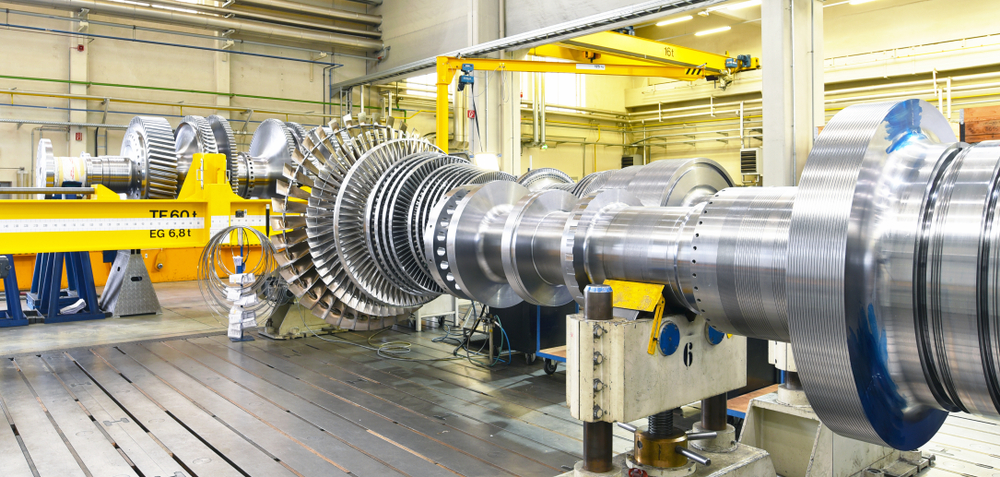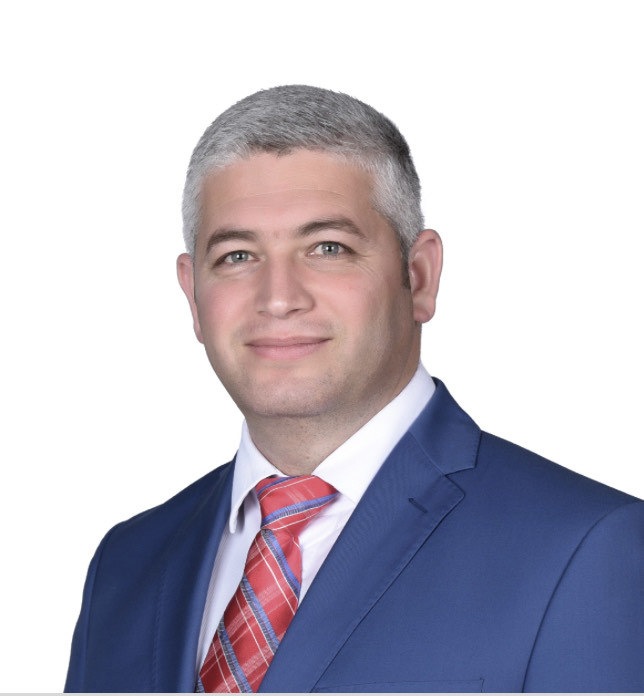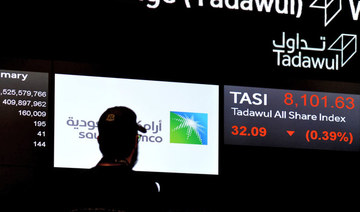RIYADH: Saudi Arabia’s Public Investment Fund is set to be ranked second among the world’s sovereign wealth bodies by 2030 with $2 trillion in assets under management, according to monitoring organization Global SWF.
A report from the firm forecasts PIF will more than double its current AuM value of $925 billion by the end of the decade, and rise from its 2024 ranking of sixth among global state-owned investor funds.
According to projections from the institute, PIF’s AuM in 2030 will represent 10.5 percent of the global sovereign wealth funds’ total assets, which are set to reach $19 trillion, as it rises from sixth place
Diego Lopez, founder and managing director at Global SWF, said: “Capital attracts capital — so international financial institutions are attracted in partnering with a player with such a huge balance sheet and role in the economic development.”
According to the report, to achieve its ambitious goal of reaching $2 trillion by 2030, the PIF will depend on a combination of strategies. These include oil revenue allocations, which refer to the portion of the Kingdom’s oil earnings transferred to the PIF, debt issuance, and returns generated from its investments.
“Saudi Arabia needs to make its capital base sustainable, diversified and resilient to lower levels of oil prices,” Lopez told Arab News.
“That means raising debt, as PIF has been doing, and eventually raising equity through subsidiaries that can act as asset managers — we see this working very well in Abu Dhabi with Mubadala Capital, Lunate, etc,” he added.
According to the report, the PIF’s 10-year annualized return from 2013 to 2022 stood at 6.9 percent, outperforming the sovereign wealth fund average of 5.7 percent annually.
In 2024, the global economy showed resilience despite geopolitical risks and market uncertainties, with global GDP growth projected at 3.2 percent, slightly improving to 3.3 percent in 2025, according to the OECD.
The International Monetary Fund forecasts a subdued five-year outlook of 3.1 percent, reflecting weaker growth in China, Latin America, and the EU. Developed markets are facing slower growth due to tightening monetary policies, while developing economies maintain greater stability.
Central banks, led by the US Federal Reserve, began easing rates in 2024, responding to reduced inflationary pressures. According to the report, as the global economy adapts, sovereign wealth funds are increasingly focused on capital preservation and stimulating foreign direct investment, with those in the Middle East and North Africa region entering a new phase of growth.
Saudi Arabia offers robust economic expansion fueled by diversification initiatives and ambitious mega-projects like NEOM, the Red Sea Project, and Qiddiya.
PIF’s investments are strategically positioned to capitalize on these high-growth areas, making it a gateway for investors seeking exposure to dynamic emerging market opportunities.
GCC sees greater international attention
According to the report, global sovereign wealth funds have, for the first time, surpassed $13 trillion in assets under management, with capital heavily concentrated in two key regions — the Gulf Cooperation Council, holding 38 percent of the total, and Southeast Asia at 10 percent.
Interest in these powerful global investors remains strong, the report said, drawing heightened international attention to the GCC, a region with fewer than 60 million residents.
Previously named the “Region of the Year” by Global SWF, the GCC has seen a wave of global asset managers and bankers establishing local offices to capitalize on burgeoning opportunities. According to the report, the GCC-Southeast Asia axis is expected to continue driving growth across the sovereign wealth landscape.
PIF represented 7.11 percent of MENA’s sovereign wealth funds’ AuM, with assets totaling $925 billion.
Leading the rankings is Abu Dhabi Investment Authority at $1.11 trillion, followed by Kuwait Investment Authority with $969 billion.
Global sovereign wealth fund investments totaled $136.1 billion across 358 transactions in 2024. The “Oil Five” — ADIA, ADQ, PIF, QIA, and Mubadala — maintained their dominance, together accounting for 60 percent of the total investment value, amounting to $82 billion. As a result, they secured positions among the top 19 dealmakers of the year.
This marks a significant rise from $74 billion in both 2023 and 2022, $41 billion in 2021, $39 billion in 2020, and $28 billion in 2019, reflecting the accelerating investment momentum of these sovereign wealth giants.
While some Gulf sovereign wealth funds leaned toward emerging markets, including their domestic economies, developed markets remained the dominant choice for most global sovereign investors.
Saudi Arabia’s PIF, Abu Dhabi’s ADQ, and Qatar’s QIA exhibited a preference for emerging markets, reflecting their strategic focus on regional and high-growth economies.
PIF investments
According to the report, a significant factor driving the PIF’s growth is its projected boost in domestic spending to $70 billion annually by 2025.
The fund’s investment strategy is focused on high-growth sectors, including infrastructure, digitalization, AI, and renewable energy.
Among the top 15 largest global investments by sovereign wealth funds in 2024 was PIF’s $3 billion acquisition of a 51 percent stake in Saudi Arabia’s TAWAL and $2.16 billion of a 40 percent stake in Selfridges in the UK.
Other significant investments for the PIF include a 15 percent stake in Heathrow Airport for $1.8 billion.
According to the institute, the largest deals are consistently pursued by a select group of funds known for their substantial firepower and risk appetite. This group includes the top 10 spenders, with the GCC’s “Big 5” leading the way.
Mubadala emerged as the leading sovereign investor in 2024, deploying $29.2 billion across 52 deals, a 67 percent increase from the previous year. It was followed by GIC at $26.6 billion, CPP with $21.1 billion, PIF at $19.9 billion, and ADIA at $17.1 billion.
PIF has also ventured into artificial intelligence and space, co-investing in Databricks and launching Neo Space Group to advance Saudi Arabia’s satellite industry.
These initiatives reflect the fund’s commitment to positioning Saudi Arabia as a leader in global digital and technological innovation.
PIF saw a 24 percent decline in its US equity portfolio, the report said. At the beginning of 2024, the fund sold shares in 18 companies worth nearly $13 billion, including pandemic-era investments like gaming giant Activision Blizzard, cruise leader Carnival, and entertainment company Live Nation, which yielded strong returns.
According to Lopez: “The sale of the listed equities was about monetizing a huge upside from their purchase during covid, rather than about decreasing the overseas portfolio.”
The expert noted the importance to recognize that while PIF’s domestic portfolio may be growing relative to its international holdings, the overall assets under management continue to expand, with significant investments being made outside the Kingdom.
PIF has also made significant investments in the electric vehicle sector, despite facing challenges with earlier ventures.
In 2019, PIF divested from Tesla but doubled down on Lucid Motors, placing a major bet on the EV manufacturer.
This strategic move has required substantial funding, including $2.8 billion in 2024 alone. Despite the financial commitment, PIF remains focused on its long-term vision for Saudi Arabia, supporting Lucid’s growth with a manufacturing facility in King Abdullah Economic City.
In January, Lucid Motors became the first global automotive company to join the Kingdom’s “Made in Saudi” program, reinforcing the country’s push to strengthen its industrial capabilities.
The program also supports Vision 2030’s goals of attracting investments, boosting non-oil exports, and creating sustainable jobs, while positioning Saudi Arabia as a hub for innovation and manufacturing in the EV sector.
PIF’s debt financing
On Jan. 6, PIF announced the completion of its inaugural $7 billion murabaha credit facility, supported by a syndicate of 20 international and regional financial institutions.
This Shariah-compliant financing structure is part of the fund’s medium-term capital raising strategy, aimed at diversifying its funding sources to support transformative investments both globally and within Saudi Arabia.
According to another report published by Global SWF in January, PIF’s use of debt financing mirrors a growing trend among sovereign wealth funds and public pension funds, which have raised around $700 billion over the past two decades.
Despite strong credit ratings from Moody’s and Fitch, PIF faces pressure from surging domestic investment in giga-projects like NEOM and Qiddiya, with annual funding needs expected to rise from $40 billion in 2023 to $70 billion by 2025.
Sustaining investor confidence will depend on its ability to manage financial obligations and execute Vision 2030 goals.
While markets currently support PIF’s sovereign-backed debt, delays or disruptions could strain resources and affect its ambitious agenda, making its financing strategy critical for both national economic transformation and global sovereign investment trends.
However, PIF’s diversified funding strategy, coupled with its ability to attract global partnerships, positions it as a transformative force capable of reshaping Saudi Arabia’s economic future and reinforcing its role as a leading driver of global investment innovation.





























